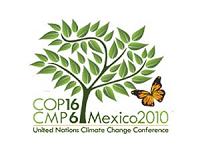| . |  |
. |
Dhaka (AFP) Nov 30, 2010 The terrible human cost of cyclones and flooding are plain to see in southwest Bangladesh, a low-lying, impoverished region on the frontline of the battle to adapt to climate change. Cyclone Aila, which hit in May last year, killed 300 people, washed away the embankments which make coastal regions habitable, and left 150,000 survivors reliant on emergency relief supplies including free rice. Aila was particularly destructive as a huge volume of water, swollen by spring tides, slammed into a densely populated, extremely poor area, said Saleemul Huq of the International Institute for Environment and Development. "Bangladesh is often said to be on the 'frontline' of adverse climate change impacts due to this combination of a large, dense and poor population with potentially severe changes [in weather] as well as sea level rises," Huq said. "Such severe storms are likely to become more frequent in future," he told AFP, adding that sea level rises mean cyclones and tidal surges will become more devastating. Such dire warnings explain why, as the UN's talks on climate change begin in Mexico, people in Bangladesh are less interested in the endless debates than in getting money to help communities prepare for increasingly extreme weather. "Even 18 months after Cyclone Aila struck, it remains a wasteland -- 90 percent of the trees are dead and the birds are still not singing," Koyra district chief Abul Bashar told AFP. "I have 150,000 people living on government handouts, they cannot farm as their lands were flooded with salt water," he said, adding that the area was also hit by major flooding in 2004 and 2007. In November, Bangladesh became one of the first three countries to tap into a pilot climate change fund which is funnelling millions of dollars to help places like Koyra cope with and adapt to climate change. Part of Bangladesh's grant, to be managed by the World Bank, will help shore up the country's coastal embankment to withstand cyclones and storm surges, and also pay for water supply projects and promote farming of more resilient crops. Tajikistan and Niger are the two other beneficiaries of the grants, the likes of which will be high on the agenda among representatives of 194 countries meeting in the Mexican resort city of Cancun. With the UN climate change negotiation process locked in deep acrimony between rich and poor nations, delegates are hoping progress on the financing issue will help rebuild trust. If all went to plan in Cancun, rich countries would provide 30 billion dollars in "fast start" funds to worst-hit nations such as Bangladesh from 2010 to 2012. This would hopefully lay the foundations for providing up to 100 billion dollars a year in aid to poor countries by 2020. "The world knows very well how we have been coping with one natural disaster after another," environment secretary Mihir Kanti Mojumdar told AFP before leaving for Cancun. "They must compensate us and take into account our population size (146 million)," he said, adding Bangladesh wanted at least 4.5 billion dollars from the funds. "Some of the rich nations are wary of committing money for the fund as they have been hit by global recession. But they are still rich and we are not -- and we need help now," Mojumdar said. A World Bank study released this month estimated Bangladesh would need to spend an additional 2.6 billion dollars by 2050 to ensure key infrastructure was protected from the impact of climate change. One United Nations adaptation project already under way in Bangladesh is to establish 6,100 hectares of mangrove plantations and 935 hectares of timber and fruit trees along the coast. UNDP administrator Helen Clark last month visited the remote island of Char Kukri-Mukri, one of four sites where women have been trained to grow the mangrove saplings, as well as trees used for timber, such as bamboo. The mangroves absorb carbon and, more importantly, trap sediment in their intricate root structure at such a high rate that they can potentially reverse the effects of sea-level rises. A total of 2.5 million trees will be planted through the project. But Bangladesh undoubtedly needs much more help, and quickly. "Aila was a sign of what is to come. It gave us an idea of how bad things will be," said Atiq Rahman, a Bangladeshi member of the IPCC, the UN's climate change research body.
Share This Article With Planet Earth
Related Links Climate Science News - Modeling, Mitigation Adaptation
 US loses leverage in climate talks
US loses leverage in climate talksWashington (AFP) Nov 28, 2010 A year after President Barack Obama worked personally to salvage the Copenhagen climate summit, a political shift leaves the United States with far less leverage while China moves ahead. US negotiators in the UN-led talks in Cancun, Mexico, face the tough task of persuading China and other emerging economies to agree to a binding treaty without offering any concessions that could face a back ... read more |
|
| The content herein, unless otherwise known to be public domain, are Copyright 1995-2010 - SpaceDaily. AFP and UPI Wire Stories are copyright Agence France-Presse and United Press International. ESA Portal Reports are copyright European Space Agency. All NASA sourced material is public domain. Additional copyrights may apply in whole or part to other bona fide parties. Advertising does not imply endorsement,agreement or approval of any opinions, statements or information provided by SpaceDaily on any Web page published or hosted by SpaceDaily. Privacy Statement |